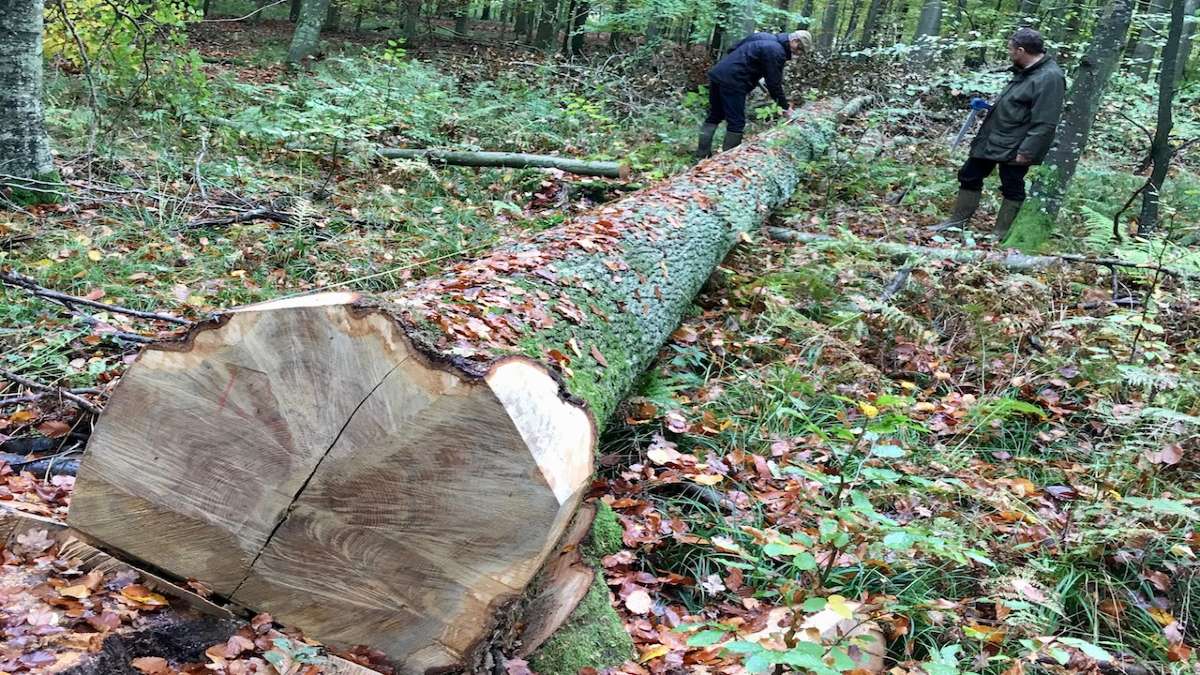
The environmental impact of wood flooring is all positive. Choosing wood is a much a ‘greener option’. Climate change is a really big issue and one of great concern for our beautiful planet. It‘s important we all try to reduce our carbon footprint. Yes, we can do the small things, such as household recycling, conserving water and energy, but what about the bigger picture? Do we consider the environmental impact of flooring when updating our home?
Is Wood Flooring Good For The Environment?
A RENEWABLE RESOURCE
Responsibly sourcing, harvesting and managing timber correctly is very environmentally friendly. Well managed woodlands are ‘kept under control’ by thinning out smaller saplings allowing existing trees enough space to grow and thrive. Replacing trees once larger trees are harvested is a cyclical process.
THE PRODUCTION PROCESS
The production process of wood flooring is extremely energy efficient. It uses less energy compared to producing other flooring materials like vinyl or laminate. The primary energy needed is for cutting and milling the timber into planks, which is a relatively low energy compared to the processes needed to produce synthetic materials. Any waste can be chipped and sold on to produce more electricity.
DURABLE AND LONG LASTING BENEFITS OF WOOD FLOORING
A good quality hardwood floor will, if cared for, last for decades and does not need replacing. Compare this to carpet that would need replacing every five to ten years, or a synthetic floor covering (laminate or vinyl) that again would need replacing more often that hardwood. In addition the production of wood flooring saves natural resources as it uses less water and energy to produce than other flooring materials.
FRIENDLY FINISHES
Conventional floor finishes, stains, and sealants have hazardous volotile organic compounds (VOCs) and solvents which can be detrimental to our health
When choosing wood finishes, you can either buy oil-based or water-based finishes. Water-based polyurethane are eco-friendly, although they may not last as long as the oil-based polyurethane finishes. They provide a clear finish and allow the beauty of the grain to shine through.
Apart from using water-based urethanes as an eco-friendly option, you can also use natural oils like linseed oil. It is important to buy sealants without VOC or a low VOC content, which means they should NOT contain formaldehyde.
IMPROVED AIR QUALITY
Wood flooring significantly improves overall indoor air quality it does trap dust and allergens. Hardwood floors are hypoallergenic, and contamination from mould and dust is minimal. Other flooring alternatives use glues and harsh adhesives that can have a negative effect on the environment and household air quality due to emissions during the life of the flooring.
REDUCING WASTE IN LANDFILL
Wood floors reduce the amount of waste in landfill. Requiring fewer raw materials to produce than other flooring options. If flooring is ever replaced it can easily be recycled into other wood products or used for fuel as a heating source. In the event it does end up in landfill it is of course biodegradable so will decompose.

RESPONSIBLY SOURCED
Sourcing timber from a responsible supplier is vitally important. A good supplier can provide the provenance of the timber. At Sutton Timber, Ben Sutton personally visits woodlands throughout the country to source our timber first hand from the foresters. By working with managed forests and suppliers that invest in reforestation, we know that every board comes from a place of care and responsibility.
In conclusion the environmental benefits of wood flooring are many. A green and healthier option for your home, environmentally friendly, sustainable and better for our planet. What’s not to like?

